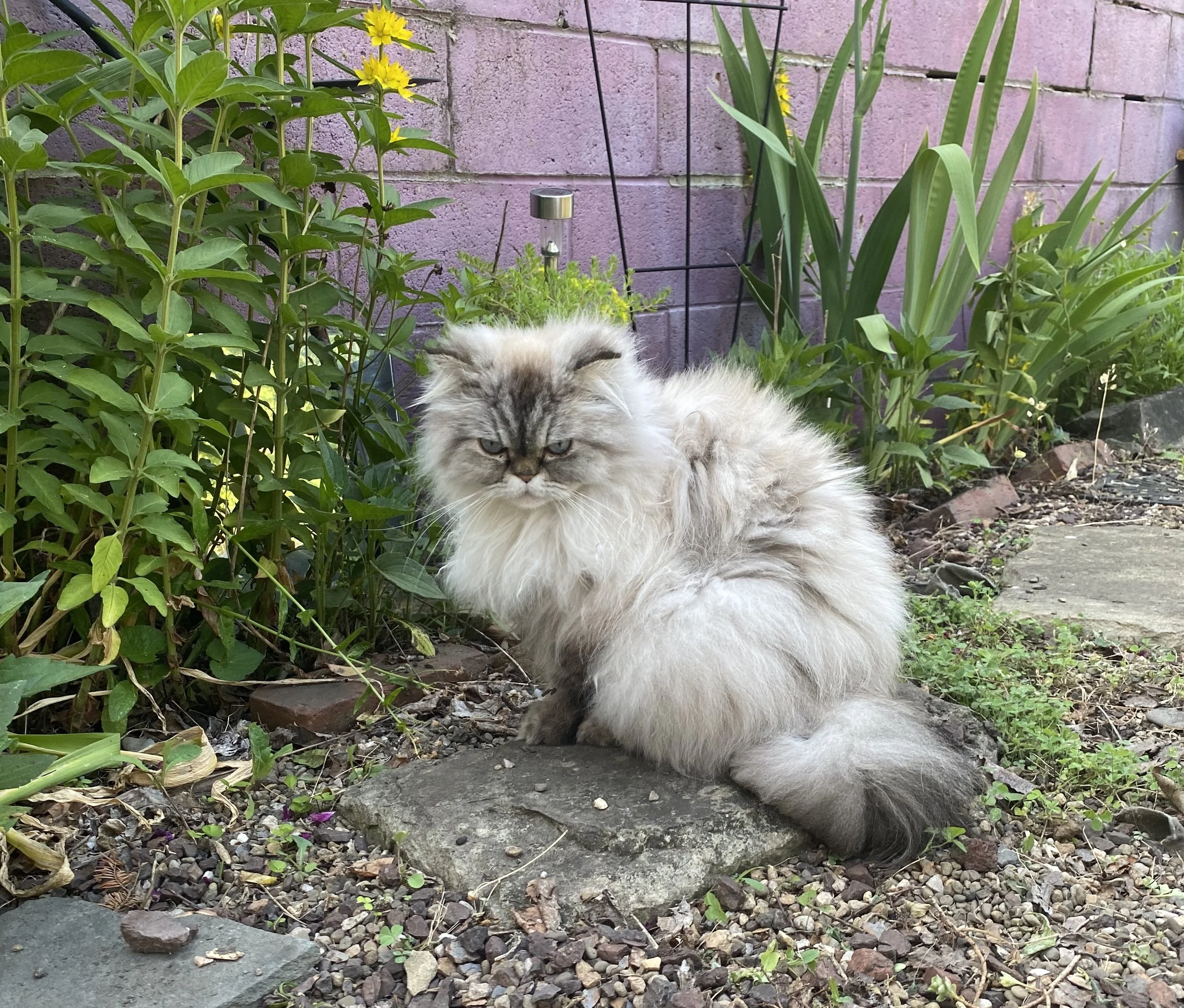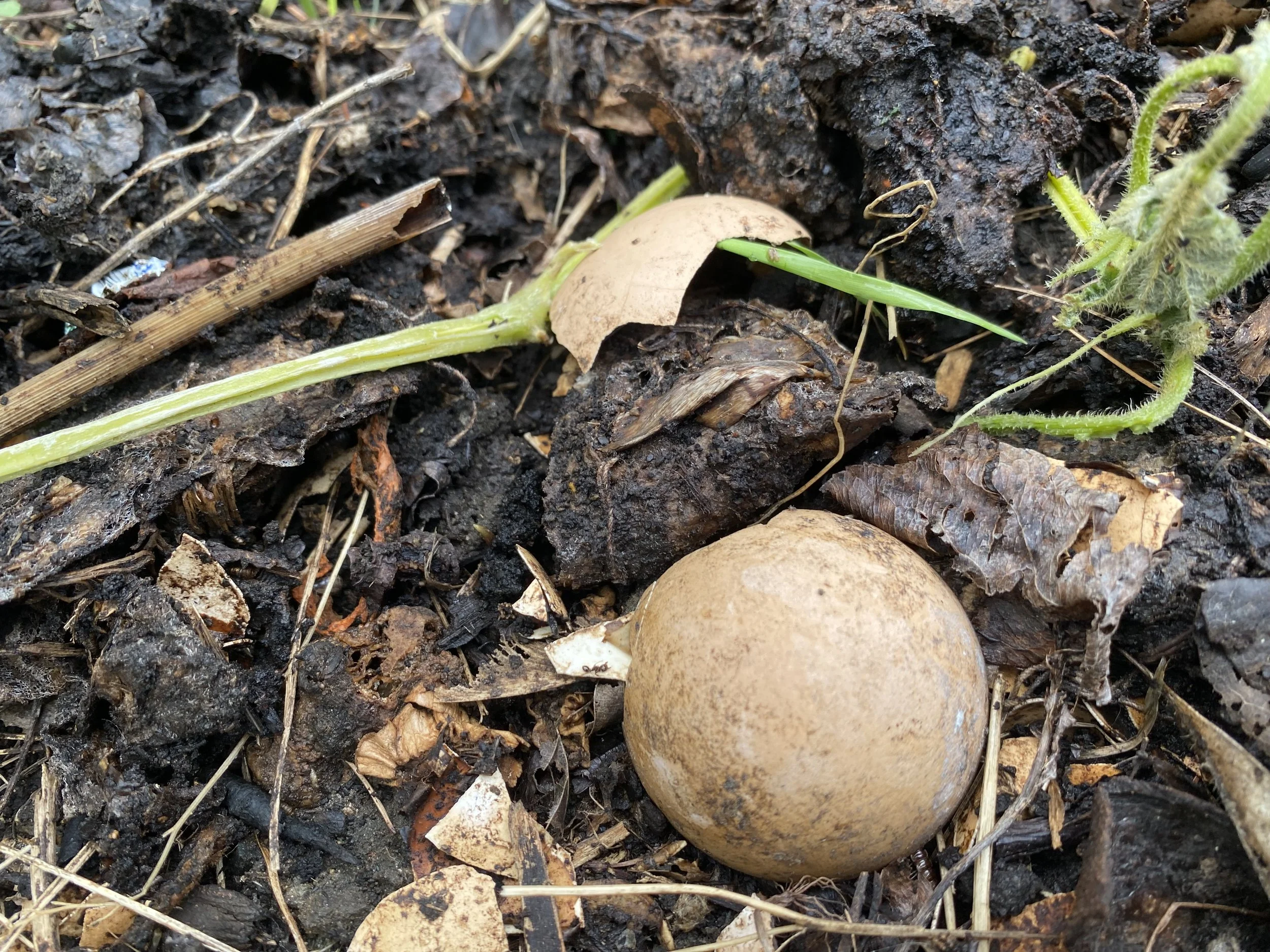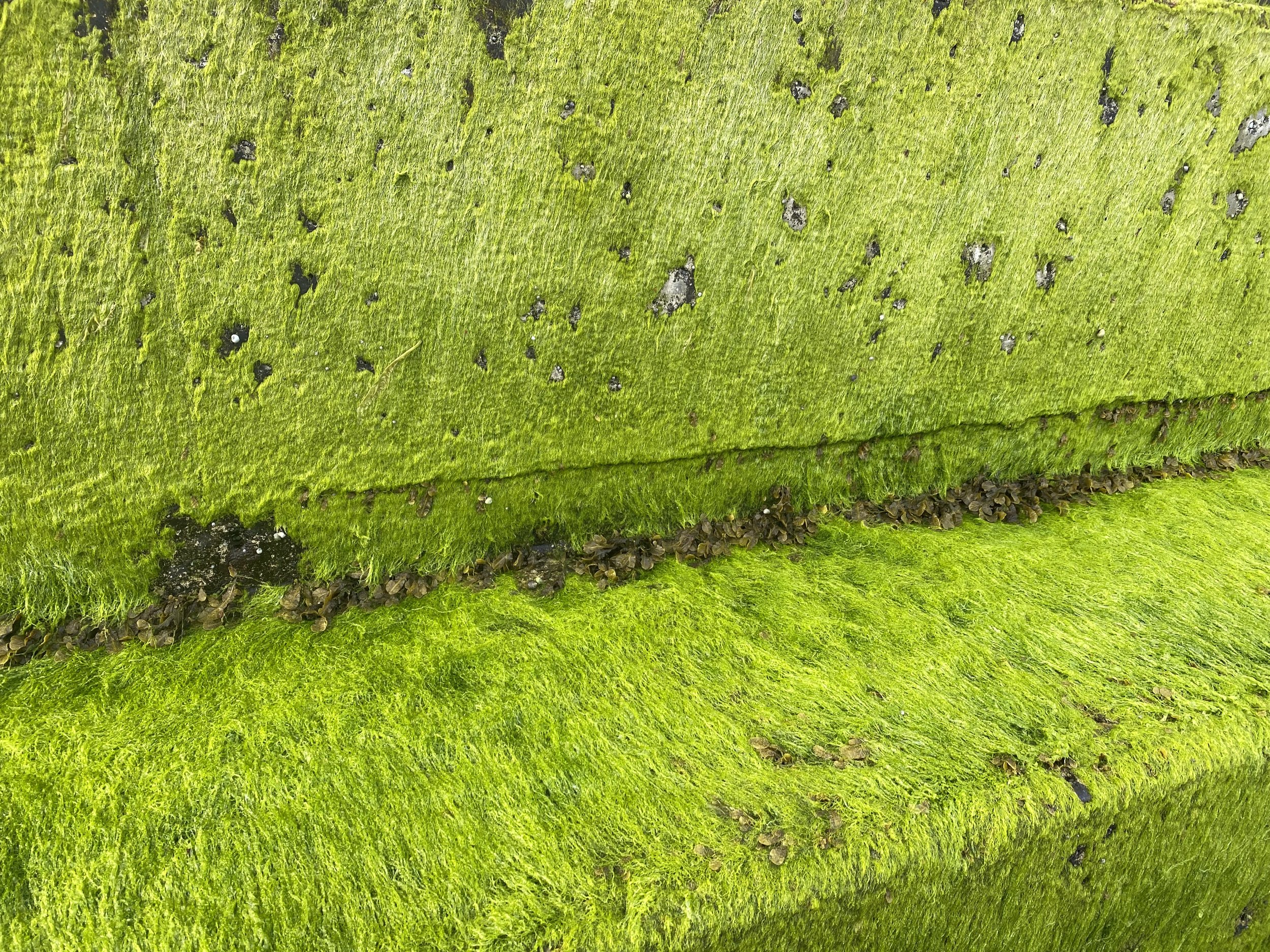in the heap
of slugful meander and bumblebee flight
Slugful meander: slow and low and in the muck of the decomposition of things
Bumblebee flight: here, there, everywhere, in-out-through, see, hear, taste, tickle, hum, hum, hummmmmm
This is where I am. Both slug and bumblebee. In the muck and wide-eyed sky. Standing in the mist, bare feet on the ground, and trusting the wisdom of earthworms.
Darwin wrote about the significance of earthworms: “It may be doubted if there are any other animals which have played such an important part in the history of the world as these lowly organized creatures.” (The Formation of Vegetable Mould Through the Action of Worms, 1881)
I once wrote a poem about earthworms (“Casting Matters” in my poetry collection, Atlas of Ordinary Things). It ends with the line: “A worm burrows in, casts what’s there into what’s new, moves what’s dark and deep into what matters.”
From where I stand, I can see that it is our good and honest work to:
See where we are—in our individual lives, our communities and collectives, as humans in this place we call a world.
See our seeing of where we are—how we frame things, the stories we tell, what we choose to hold and let go.
Stay open, curious, and humble—accepting that what we as humans (choose to) see is always a wisp of blur, fragment in a heap.
A compost pile begins dense and chunky with each scrap identifiable as what it once was—eggshell, onion skin, avocado peel, cut of a spider plant. Over time, bacteria (oh, brilliant and wise bacteria) break things down and the pile becomes muckier, gooier, thick in its overlaps and collapse.
The names of the things in the pile decompose with it. The what-it-was stories dissolve as solid matters untether themselves from their before-forms. Everything loosens. What was saturates into-as something else.
We are standing in a dense and chunky compost pile.
Many of the scraps are still whole and named. Quite a few seem impermeable. Many humans don’t see that we are, too, bits of matter in the pile.
We are not outside of the heap.
We are in the heap, the murky mess. We are its density and its decomposing.
I imagine myself small, underneath a damp and crumpled leaf next to a broccoli plant in my garden. The roly-polies and millipedes are giants. I cuddle in next to the base of the stem and listen to the soil sink its wisdom into my skin.
I ask myself: What am I willing to surrender to the soil?
I see myself hide in the idea of it, the romance of its metaphor, how I distance myself from the larger question: What do I dare give up?
It’s not surprising that the book On Giving Up by Adam Phillips poked up in my learning field this week. I landed on it with my small six legs, let my proboscis explore its pages and slurp its nectar of layered questions and provocations. Such a brilliant daisy for linger and hum.
Here’s a morsel:
“Our history of giving up—that is to say, our attitude towards it, our obsession with it, our disavowal of its significance—may be a clue to something we should really call our histories and not our selves. It is a clue to the beliefs, the sentences, around which we have organized ourselves. If giving up tends to be the catastrophe to be averted, what do we imagine giving up is actually like? Not to be overly impressed by giving up shows us what we do then value. We make a world out of it.” (Adam Phillips, On Giving Up, p. 10)
We make a world out of it.
We make the world from our sentences, our beliefs, the frames of our seeing.
What do we dare give up of the worlds, the systems, the understandings we’ve constructed?
Can we give up what we’ve told ourselves is worthy?
Can we see that even our most carved and certain words are also fragments dissolving?
What are we willing to give up to the heap?
Here’s the magical (and simple, ordinary) thing about compost:
It’s alive. It’s abundantly rich with nutrients and wisdom and water and heat and magnificently miniscule beings. Compost knows of spirals, webs, the endlessness of generosity and love. Compost knows how to build a world. Knows how to nourish without fear or control. Knows freedom and wildness and wonder and awe.
Lest you think I’m over here having a party in the compost pile; I assure you I am not. It’s not a particularly pleasant place to be (even as I have reverence for it). Compost agitates. Murky and muddled, it magnifies the heat. Cavernous and crowded with decay and fester. Most of what is here I cannot see. Most of what I see I do not understand. I, too, am but an eggshell unforming.
We are all bits of matter unforming in the smoldering decay.
Each day I practice slugful meander to be with the lostness, blur, and collapse. I feel it slow, deliberate, sobering, both jumbled and stark. Yet there is clarity here. A different kind. I know it in my root.
And what’s here ignites my bumblebee into winding fields of glimpse and remembering. I feel it yellow, tender, round, true. Everything is frequency.
The matter hums. Hummmmmm.
What’s given up returns anew.
The hums of the heap bring offerings of rich new questions to live into.
New questions are emerging from inside the many dense and chunky clumps in the compost pile: School, Health, Money, AI, Farming, Citizenship, Democracy. Each is a world dissolving its particular architectures of vocabulary, its structures and systems, sentences and words, understandings and rules, what it names as worthy and right.
Yet, for us to hear the new questions, find and follow them, and learn to co-create with beetles, bees, stars, and sea…
we must surrender to the heap.
We can’t stand outside and look in at the decomposing mess.
The dissolving matters aren’t “problems” to be examined and “solved.” We must dissolve, too. We can’t bypass the heap or build doors to see and get through to “the other side.”
As Báyò Akómoláfé says, “Doors behave. They maintain the logic of the architectural frame.” He continues, “You know what doesn’t ‘behave’? Cracks.” (On Doors and \cracks\)
Cracks are wise and free. Alive as compost. They invite us to listen, pause, honor, and unfold into new architectures of connection, stretch, root, and rejoice.
Ask the moss. Ask music. Wonder with water. Pray with a dandelion. Count the twos and fives and what’s between. Blow a bubble and watch the wind. Sing in a minor key. Stub your toe. Listen to a curve of light. Stand in soil. Sink in. Stay for a while. Remember.
*
as soilful delight, Melissa
Happy birthday to this sweet little one. Willow turned 9 on June 4th. Oh, how she loves to watch the birds, feel the breeze, nibble the grass, and simply be with the marvel of it all. Thank you, Willow. I love you.
The hums of the heap bring offerings of rich new questions to live into.
Cracks are wise and free. Ask the moss.
I’ve definitely been a honeybee when it comes to my May (into June) reading… flying here and there, tasting this and that, slurping some voraciously and fleetingly sampling others.
Recommendations:
Let Us Sing of the Syncretic Gods of Outcasts and Wanderers [podcast]
The Emerald, by Josh Schrei (The Mythic Body)
I often recommend this podcast because every episode is heart-opening and mind-stretching and always plays-layers-surrenders in ways that spiral my soul home. This recent episode is no exception. It is brilliant and oh, so supportive for the dissolving and remembering that we’re inside in this moment.
By the Jordan [song]
A glorious and rupturing song, how it weeps as it maps; how it echoes the wails of children and imprints heart-wrenching ache; how it connects the water of all of us with the waters of the Jordan. There is here and we are there.
The Emerald podcast episode mentioned above features this song and oh, how it flows itself through the episode, through the rivers of all the hearts of all the time.
Slugs and snails from the Connemara, Ireland
My recent time in Ireland reminded me of how much I love snails and slugs; there were oh, so many new snail and slug friends to meet as I walked in mossy forests near edges of ocean. When I returned home, I went down a snail hole (not a rabbit hole) to do some remembering and further research. If you like to study mollusks, too, you might like this informational page from the Carnegie Natural History Museum. For some extra wondrous delight, click on the “Ask the Scientist” video to hear from Tim Pearce, Curator and Researcher of Mollusks. Many years ago, he is the human who taught me that octopuses are mollusks. Oh, the delight of that moment of learning!
Subscribe to Noticing Matters for weekly content of wonder, wander, unfolding, and delight.
Reach out if you’d like to:
deeply notice something (organization, school, program, community, idea, policy, research, curricula, other),
explore its architectures (often implicit and hidden),
learn ways to listen with the dissolving,
allow rich new questions to emerge for the highest good in your context.








